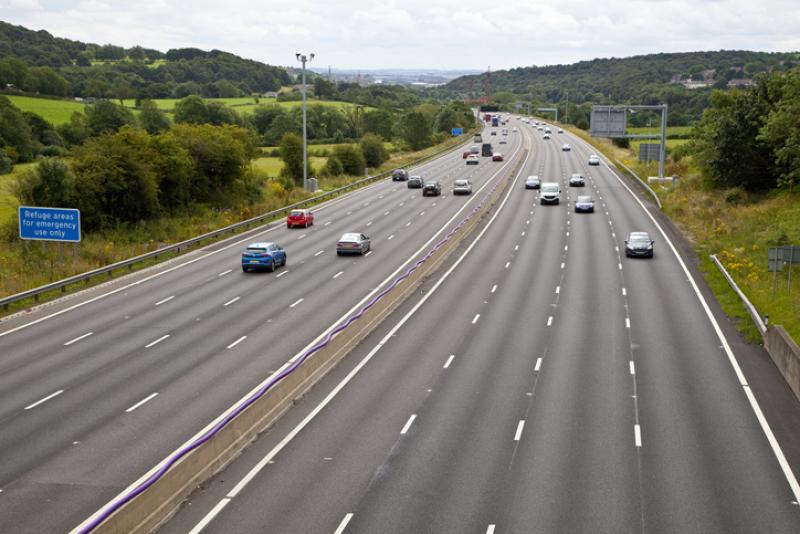
Smart motorways, previously known as managed motorways, have existed in the UK since 2006 when the M42 in the West Midlands became a controlled motorway.
Read on to learn more about how they work, possible safety concerns, and what to do if you break down on a smart motorway.
How do smart motorways work?
Regional centres monitor and manage the flow of traffic on smart motorways.
When signs of congestion show, the hard shoulder is opened as an extra lane and variable speed limits can be introduced to help keep traffic flowing smoothly.
There are three types of smart motorway:
- dynamic hard shoulder: where the hard shoulder’s temporarily opened to traffic
- all lane running (ALR): where the full width of the road is usable with emergency refuge areas alongside
- controlled: three or more lanes, a hard shoulder and variable speed limits
As of April 2024, there were 396 miles of smart motorways in England.
What are the benefits of smart motorways?
National Highways, who manage the UK’s motorways, say the M42 smart motorway shows a 22% improvement in journey reliability and personal injury accidents have reduced by more than half.
There’s also an environmental advantage of a vehicle travelling at a constant speed compared to one which is in stop-start traffic and is accelerating and braking inconsistently.
While more vehicles on the motorway may have increased air and noise pollution in the smart motorway areas, evidence doesn’t show a significant increase in either.
This could be due to the reduction in speed and smoother flow of traffic, which in turn could mean lower emissions.
Safety concerns over smart motorways
There have been some concerns around the removal of the hard shoulder on some smart motorways.
If there’s an accident or a car breaks down, people can be left stranded in the middle of traffic and emergency services can struggle to get through.
Research from National Highways suggests that if you break down on a smart motorway without a hard shoulder, you’re three times more likely to be killed or seriously injured than on one with a hard shoulder.
In 2023, the government announced they would stop building new stretches of smart motorways.
Breaking down on a smart motorway
If you break down on a smart motorway, you need to:
- Pull into one of the Emergency Refuge Areas (ERA) which are located at regular intervals – look out for the blue signs with an orange SOS phone number.
- If you can’t pull into an ERA, try to pull in as close to the nearside boundary or verge as possible. Consider if it’s safe to leave your vehicle by the left-hand doors and wait behind the crash barrier.
- Use your hazard warning lights and leave your sidelights on if it’s dark or visibility is poor.
- Wear a high-vis jacket if you have one.
- Use the emergency telephone within the ERA to speak to the Regional Traffic Control Centre, and they’ll send someone to help you.
- Once the Regional Traffic Control Centre is aware of your situation, they’ll be able to close lanes and send police or traffic officers to help you.
If you’re stuck in a live lane and are unable to move into an ERA, you need to call 999 for emergency help and then contact your breakdown provider. Stay in your car, keep your seatbelt on, and switch on your warning lights.
Tips for driving on a smart motorway
National Highways offers the following advice for smart motorway driving:
- never drive in a lane closed by a Red X
- keep to the speed limits shown on the signs
- hard shoulders are always identified by a solid white line - if there’s no speed limit or a red X is displayed above it, don’t use it except in an emergency
- a broken white line indicates a normal running lane
- if the hard shoulder’s being used as an extra lane, use the designated Emergency Refuge Areas for emergencies
- if your vehicle experiences difficulties exit the motorway immediately, if safe to do so


 ,
,  ,
, 